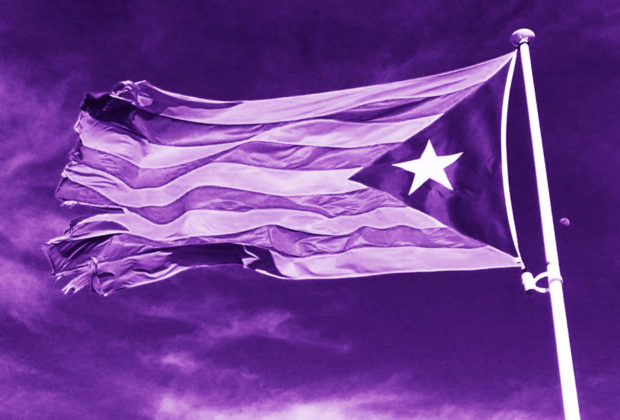As I file these comments on Wednesday, November 15th, the Catalan crisis is unfolding toward its next critical moment, the December 21st election of a new regional Parliament. The results will almost surely change the composition of Catalonia’s regional government, the Generalitat. And this, plus the tumultuous developments of the past several weeks, will likely allow for a new round of negotiations over the status of that troubled region of Spain. These negotiations could fail, leading to further deadlock or igniting a new round of confrontation between Catalonia’s independentistas and Spain’s central government. But they could also produce some sort of substantial reconciliation. Let us hope so.
Although Catalonia has been part of modern Spain since its inception in the late 15th century, it has harbored, for much of that time, a strong sense of its cultural and linguistic uniqueness, a conviction of its citizens’ exceptional economic acuity, and a desire for greater autonomy or complete independence. This fall’s conflagration, well covered for anglophone readers in journals such as the Guardian and the Nation, were ignited a decade ago by two unfortunate developments: the conservative Partido Popular’s blocking of a Catalan campaign for greater autonomy that had wide support across Spain, and the economic catastrophe of the Spanish Crisis or Great Recession. The economic suffering unleashed by the Crisis lent weight and urgency to the argument, a staple of nationalist discourse in Catalonia, that the region was being bled by Madrid. They were, in other words—and this seems to be the case—sending more to the central government than they received back in goods and services. (It might be noted that 14 American states—like Catalonia in Spain, the most prosperous in the nation—are currently in the same boat. But the legitimacy of this sort of redistribution of resources is not widely questioned here.)
When the conservative government of Spain refused even to discuss these issues, Catalonia’s major “nationalist” parties, the center-right PDeCAT and the center-left ERC, formed an alliance, took power, and convened the referendum on independence. This referendum, which the central government proscribed and tried to block, finally took place on October 1st of this year and led in turn to a formal declaration of independence by the Catalan Parliament on October 27th. Both the referendum and the unilateral declaration of independence were clearly unconstitutional. As Sebastiaan Faber and Béquer Seguin explain in their trenchent Nation article on the crisis, “Spain’s 1978 Constitution grants the region limited autonomy, including the right to its own parliament, language, and police force, but also declares Spain “indivisible.” As such, there are no provisions for regional secession, and referenda of any kind can only be issued by the central state, for the entire state.”
Thus the national government acted legally, if not wisely, when it first tried to stop the referendum through police action and then, after independence was declared on the 27th, took direct control of Catalonia, dismissing the regional government, dissolving the Parliament, and charging the independentista leaders with sedition and rebellion. Then, in a surprisingly canny move designed, it appears, to demonstrate its desire to restore autonomy to the region as quickly as possible, it called the December 21st election. In the run-up to this election, the independentista movement is fracturing and influential independentistas have stepped forward to declare that the movement has not laid the necessary instititional foundations for independence. At the same time, the national government is signaling a willingness, however grudging, to consider proposals for greater Catalan autonomy within the Spanish state. Yet many Catalans are still fervently demanding independence.
What will come of all this remains unclear, but what has happened so far has already revealed some striking failures of political acuity, responsibility, and self-knowledge on the part of the Catalan radicals and of Spain’s recently emerged leftist party, Podemos, whose history I have been trying to trace in these postings. Both the independentistas and Podemos have dramatically misconstrued the will of those they seek to mobilize and vastly underestimated the work it takes to become an independent nation or, in Podemos’s case, to radically remake an existing one. A significant segment of the independentista leadership, in addition, has found itself unequal to the bitter personal sacrifices required to make a revolution. And the leaders of Podemos have failed to practice the constant self-interrogation that is required of a radical party if it is to avoid mistaking its own founding desire for the will of the people.
***
The independentista parties—the middle class, pro-business PDeCAT, the center-left ERC, and the radical left CUP—while successful in pushing through the October 1st referendum and subsequent declaration of independence, have dramatically overestimated their power and popular support in Catalonia and beyond. Ready to push through independence, over the last year or so, without even a clear majority of Catalan voters, let alone the super majority several eminent pro-independence commentators have judged imperative for such a drastic step, they now find themselves challenged by millions of Catalans who want to remain part of Spain and millions more whose support for secession may prove to have been lukewarm. These developments have robbed their cause of crucial credibility and momentum at home. And it has made their so far unsuccessful attempt to win international support even more difficult. This support, which they believed they would receive, has not materialized either within the European Union or beyond it. No doubt the independentistas can still count on formidable popular support within the region—recent demonstrations have been very large. But so can the nacent anti-independence movement, which brought hundreds of thousands of Catalans into the streets of Barcelona the Sunday after the October 1st referendum. This discernable lack of a decisive edge in support, combined with the central government’s swift demonstration of its power, has sponsored all sorts of infighting and second guessing, which in turn has further eroded public confidence in the feasibility of secession. In early October, 51% of Catalans , according to the well-regarded Metroscopia poll, believed that independence was possible in the very near future. But only a month later, the November poll shows that 66% no longer believe this is true.
The independentistas have been dramatically unrealistic in a second respect as well. It is by now painfully evident that in the run-up to the declaration of independence they did not address (or even face) the innumerable challenges of state formation. Artur Mas, who as President of the Generalitat until 2015 led the push for independence, confessed to the Financial Times in early October that Catalonia was not actually ready for “real independence”: “‘The important thing is that the declaration produces a country that really is independent, and to be independent there are some things we still don’t have,’ Mas said, pointing to issues such as territorial control, tax collection and the judicial system.” Events on the ground have emphatically reinforced this image of utter unreadiness. A recent article in El Confidencial on the crisis of leadership within the secessionist camp notes that the reputation of Oriol Junqueras, the ex-vice-president of Catalonia and leader of the powerful ERC, has been weakened by his mismanagement of the independence process: “Junqueras himself is in question because he was the one responsible for forging the structures of state that needed to be ready for the day after the unilateral declaration of independence. But were not.”
The less than heroic behavior of Junqueras’ allies, ex-Catalan president Carles Puigdemont and ex-president of the Catalan Parliament Carme Forcadell, points to another failure of preparation among the independentista leadership. That Rajoy’s conservative government responded so forcefully to their acts of defiance was no surprise. But their own subsequent actions provoke a bit of wonderment. Puigdemont, facing arrest, quickly and unceremoniously decamped for Belgium with some of his counselors. And Forcadell, hauled into court under charges of sedition and rebellion, avoided pre-trial incarceration by promptly proclaiming that for her, the Catalan Parliament’s declaration of independence was only a symbolic act and carried no juridical weight. Satisfied by this striking about-face and by Forcadell’s promise to act henceforth in compliance with the Constitution and the central government’s decrees, the judge let her go home to await further developments in her case.
Puigdemont’s and Forcadell’s actions are hardly the stuff of national foundation legends, and they have embarrassed and no doubt demoralized many of their followers. Commentators have suggested that, consciously or unconsciously, the two were only playing at revolution, intoxicated by its opportunities for heroic posturing and oblivious to its often very harsh, even mortal, personal demands. This same charge cannot be laid, of course, against untold numbers of anonymous activists, who will have worked long and hard for independence in obscurity and without remuneration.
***
Podemos’ self-inflicted wounds in the Catalan struggle have been every bit as deep as those suffered by the independentistas. Its defense of the nation’s “plurinacional” composition has been courageous and, I think, correct. But its position on the October 1st referendum was a political embarrassment and a public relations catastrophe. It begins with the proclaimation of the Catalans’ “right to decide,” on their own, whether or not to leave Spain. (This right, as I’ve said, is denied by the Spanish Constitution.) But in the same breath, it also proclaims its strong preference for a “no” vote on independence. And it concludes by rejecting the actual October 1st referendum as illegitimate.
The party’s support for the Catalans’ loudly declared right to choose immediately alienated not only Spanish nationalists and constitutionalists but also the many progressive Spaniards who see Catalonia’s impulse to leave as an expression of privileged selfishness. “There are two types of independentismo or sesesionismo,” writes a partisan of this point of view, “that of the oppressed colony and that of the wealthy region with no sense of solidarity.” Catalonia, he continues, belongs to the second type and does not deserve progressives’ support. Pedro Sanchez, the head of PSOE, has himself made this argument. “Is it the act of a leftist,” he asks, “to defend a collectivity that is proclaiming its independence as a result of its lack of solidarity with other [poorer] regions of Spain, to which it contributes more resources than it believes it should?” And the culturalist case for independence is similarly rejected by many progressives. “There’s nothing progressive,” a chief spokesperson for the Socialists, Óscar Puente, declared recently, “in supporting the rich regions of Europe as they declare their independence [from the nations to which they belong].” And, he insisted, “there’s nothing progressive about putting cultural identity over equality.” In defending the Catalan right to decide, these critics suggest, Podemos supports self-determination for the rich and the ethnically exclusive.
But in any event, as mentioned above, Podemos’ defense of the Catalans’ right to self-determination was in fact only conceptual. Almost immediately, it declared the actual referendum, that of October 1st, illegitimate. To be binding, Podemos insisted, the decision for independence would have to be made by way of a “pacted referendum,” one authorized by the Spanish state. This stipulation, as has been widely recognized, constitutes a classical “catch-22.” It tells the Catalans that while they do in fact have the right to vote themselves out of a Spain that denies them this right, in order to exercise it they must first get Spain’s permission. One can hardly blame the independentistas for vociferously rejecting this logic, which would stop the movement in its tracks.
As one reads deeper into Podemos’ pronouncements on Catalonia, the suspicion deepens that the party’s leadership is less interested in solving the secessionist crisis than in using it to initiate an even greater crisis, a popular rebellion against the “Regime of ‘78” and its constitution. As one progressive commentator puts it, “Podemos believes that the Catalan conflict opens a great window of opportunity to put an end to the regime of ‘78.”
In other words, the party seems to be imagining that a window of historical opportunity like that which sponsored its emergence as a significant political force in Spain is once again opening. It was the apprehension of such an opening in the midst of the economic Crisis that gave the founders of Podemos, after all, the energy to build the party in the first place. Iglesias and his team understood Spain’s severe economic crisis as a moment of potential rupture, when popular anger, correctly focused, could lead to a repudiation not just of the Spain’s corrupt party leaders but of the two party system as well and the constitutional order on which it was built: the regime of ’78. This regime, they proclaimed with some reason, had created a political system in which power flowed away from the people to economic and political elites committed to the neoliberal order overtaking Europe in the 1980s. And after some four decades in power, the system was beyond reform: what was needed instead was a revolutionary remaking of Spanish democracy via a “constituent process” that would produce a new, more authentically democratic, constitution. Of course, achieving this goal would be very difficult, Iglesias repeatedly acknowledged. Time was short: if the left failed to mobilize the people and seize the moment, the neoliberal elites would figure out how to manage the economic crisis and “normalize” the new situation of ever greater deregulation, desigualdad, and precariedad. Then Podemos, with the window closed, would be condemned to work within the stuffy rooms of the regime itself, scrambling for small victories until, in a decade or so, another economic crisis would erupt and another window would appear.
Over the past year or so, and in spite of the heroic efforts of millions of followers, Iglesias’ fears have come to pass. It has been possible for the conservative government to claim progress in turning the economy around, and popular anger has indeed cooled to the point where attempts to sponsor mass mobilizations against continuing economic injustice have borne little fruit. After the heady days of its first campaigns, Podemos has spent much of the last year trying to come to terms with this disappointment and find a way forward. But when the Catalan situation exploded this fall it apparently saw, or thought it saw, a new and unforeseen opportunity for radical change. Trotting out the old vision of a Spain governed by a single corrupt, anti-democratic, and uninacional block of parties (PP, PSOE and Ciudadanos) and insisting that popular support for a radical “proceso constituyente” is once again building, the party began to argue, a few weeks ago, that the Catalan crisis could only be solved by launching a radically democratic project to rewrite the entire constitution. The creation of a new territorial compact that would finally satisfy Catalan calls for greater autonomy would be a part of this project, but by no means its centerpiece or even, necessarily, its first objective.
By welding the Socialists to PP and Ciudadanos in this manner, Podemos once again turned its back on an alliance with PSOE that is most likely the left’s only hope for taking power in Spain. And they did so even though PSOE had demanded, as a condition of their support for the Rajoy government’s policies, that it immediately take up the question of Spain’s “plurinacional” nature and reform the constitution to make more room for regional autonomy. Rajoy’s agreement to this quid pro quo was a significant advance for the cause of constitutional reform, which the conservatives had been blocking for years, but it did not satisfy Podemos. The party complained instead that “PSOE and the PP only want to talk about the territorial model, and this won’t resolve the problem of the Spanish people.” “It would be a trick against the people,” they declared, “if we were to open the constitution only to speak of the territorial model.” Of course, the socialists made it clear that they saw this constitutional commission as opening the way for others, but this did not satisfy Podemos, which refused to participate. The fate of the commission is now in question.
What goes unacknowledged by this effort to expand a punctual crisis into a revolutionary moment is the powerful and entirely rational resistance of most people to the profound dislocations that revolution entails. If most people most often choose to put up with a certain degree of injustice and inequality, it is not only because they are well aware of the sanctions which they will face by rebelling. It’s also because, living outside the circles of revolutionary enthusiasm, they recognize that revolution-making and nation-building entail endless theoretical and practical debate, the wild proliferation of manifestos, committees, commissions, and elections; profound disturbance of all aspects of life, and the likely eruption of bloody schisms, purges, coups, and terror. What grounds does Podemos have, one wonders, for assuming that the vast majority of Spaniards—whose lives are hard but not impossible, who have much more to lose than their chains, are ready, even eager, to have these lives swallowed by the political, that they would prefer this, indeed, to the relatively modest work of finding a way forward by focused debate on a specific problem?
The party’s reading of the situation in 2014 as proto-revolutionary was perhaps in hindsight an error. But it was an understandable one, and for a moment, through extraordinary effort, the project to focus popular misery and rage into a force for political revolution seemed poised to succeed. But this fall’s strained reading of the Catalan crisis as another such moment of opportunity is much less plausible. There’s little in the present conjuncture to suggest a general will to tear up the nation’s Constitution and start again. The assumption that such a will exists seems instead to result from the privileging of a personal need—to imagine a Spain ripe for revolutionary remaking–over a sobering reality: that things are simply not bad enough, at this moment, to interest the vast majority of Spaniards in this project. That this call to arms has so far found no traction is unsurprising. Once again, it would seem, the second time is farce, as Marx famously remarked with regard to French populist movements in the 19th century.
***
At the end of last week, while Spain was on the boil, Pablo Iglesias was in Bolivia, speaking at a conference on the 100th anniversary of the Russian Revolution, receiving a decoration from the Bolivian parliament, and invoking an ever more radically decentered vision of Spain. The nation Podemos wants to build, he told his Andean hosts, will include “a nation that is called Spain, a nation that is called Catalonia, a nation that is called the Basque Nation and . . . all of these nations will agree that Spain as a nation will be a collective project.” In other times, the right wing and centrist Spanish press would have been all over this story, pitching it as confirmation of what it has been saying about Podemos all along: the party is communistic, a creature of the Bolivarian movements in Latin America, a friend to Basque terrorists and Catalan separatists, an enemy to Spain’s unity as a modern nation. But this weekend one found only brief notices or none in the national press. This near silence speaks volumes about the current place of Podemos on the nation’s turbulent political terrain.
***
John McClure is Professor Emeritus of English at Rutgers University-New Brunswick. His most recent book is Partial Faiths: Post-Secular Fiction in the Age of Pynchon and Morrison (2007). He is a resident of Spain for half of each year.







No Comments